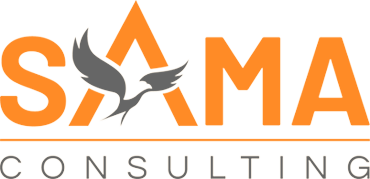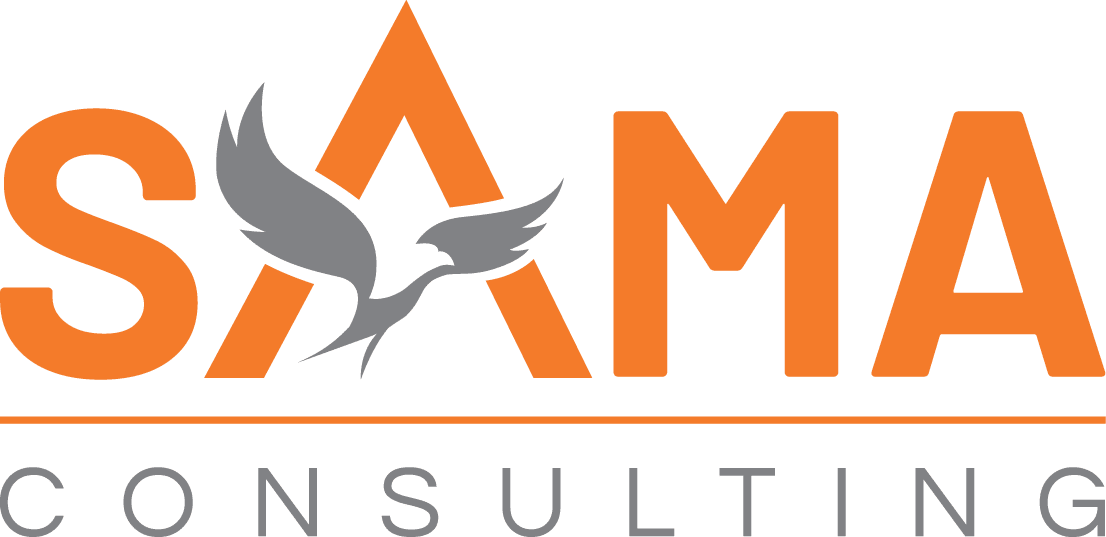
Unlocking Employee Potential: How Integrating Workday Talent Management with Learning Drives Continuous Skill Development
In today’s fast-paced business world, skill gaps are a major hurdle for organizations. Employees need constant upskilling to stay relevant, yet many companies struggle with disjointed systems that fail to connect talent strategies with learning opportunities. Integrating Workday Talent Management with Learning changes this, creating a seamless ecosystem for continuous skill development.
This integration empowers HR leaders to align employee growth with business goals. By embedding learning directly into talent processes, companies can foster a culture of lifelong learning. Let’s explore how this powerful combination unlocks potential and drives success.
Understanding Workday Talent Management and Learning Modules
Workday’s unified HCM platform brings together various HR functions on a single foundation. Talent Management and Learning are key modules within this ecosystem. Their integration allows data to flow effortlessly, supporting holistic employee development.
What is Workday Talent Management?
Workday Talent Management is an AI-powered solution designed to attract, develop, and retain top performers. It includes tools for recruitment, performance reviews, succession planning, and skills tracking. At its core is a dynamic skills foundation that embeds competencies throughout the employee lifecycle.
This module uses AI to match talents with opportunities, such as internal gigs or promotions. It provides executive insights via workforce scorecards, showing metrics like headcount growth and career progression. Organizations can configure it to fit unique needs, extending functionality through apps and developer tools.
For skill development, it curates personalized paths using data from employee profiles and performance data. This ensures workers build relevant competencies aligned with career aspirations. Additionally, it supports goal-setting frameworks like OKRs, linking individual objectives to company strategies.
What is Workday Learning?
Workday Learning is a modern LMS that delivers personalized, engaging training experiences. It embeds learning into daily workflows, making it accessible via mobile or desktop. Features include content curation, progress tracking, and integration with external providers like LinkedIn Learning or Udemy.
The module supports various formats, from micro-learning videos to certifications. AI recommends courses based on roles, skills gaps, and interests. It ties directly into career hubs, where employees explore growth opportunities.
By focusing on continuous employee growth, Workday Learning ensures training isn’t isolated but part of broader talent strategies. This creates a loop where learning outcomes inform talent decisions. Moreover, it offers social learning elements, like peer discussions and mentorship pairings, enhancing collaborative development.
Ready to Unlock Your Workforce’s Full Potential?
Sama Consulting helps organizations integrate Workday Talent Management with Learning to create a continuous development ecosystem—enhancing employee engagement, upskilling opportunities, and organizational performance.

The Benefits of Integrating Talent Management with Learning
Integrating these modules yields transformative results. It bridges the gap between identifying skill needs and addressing them. Employees gain tailored development, while organizations build agile workforces.
Closing Skill Gaps Proactively
Skill gaps cost companies billions annually in lost productivity. Integration allows real-time analysis of competencies via Workday Skills Cloud. This AI-driven tool maps skills across the workforce, highlighting deficiencies.
Learning recommendations then target these gaps. For instance, if a team lacks data analytics expertise, the system suggests relevant courses. Completion data feeds back into talent profiles, updating skills inventories automatically.
This proactive approach reduces turnover by showing clear growth paths. Employees feel invested in, boosting engagement and retention. Furthermore, it enables predictive analytics, forecasting future gaps based on industry trends.
Enhancing Employee Engagement and Retention
Engaged workers are 21% more productive, per studies. Integrated systems personalize experiences, making learning feel relevant.
Career hubs in Workday combine talent data with learning histories. Employees see suggested roles, required skills, and training to bridge gaps. This transparency fosters ownership over development.
Incentives like badges or promotions tied to completions motivate participation. Overall, it creates a culture where growth is embedded in the employee journey. It also supports diversity initiatives by tracking equitable access to learning opportunities.
Driving Business Agility and Innovation
Agile organizations adapt quickly to market changes. Integration provides insights into workforce capabilities, informing strategic decisions.
For example, during digital transformations, leaders identify upskilling needs. Learning modules deliver targeted programs, ensuring teams are ready. This alignment accelerates innovation, as skilled employees tackle new challenges effectively.
- Improved ROI on Training: Track how learning impacts performance metrics.
- Better Succession Planning: Use learning data to prepare high-potentials.
- Diverse Talent Pipelines: Promote inclusive development across demographics.
- Cost Savings: Reduce external hiring by internal upskilling.
These benefits make the integration a strategic imperative for forward-thinking HR teams.
Technical Aspects of Integration
Workday’s native architecture simplifies integration between modules. Since both run on the same platform, data sharing is inherent. However, deeper customizations use APIs, connectors, and tools like Workday Studio.
Native Data Flows Between Modules
In Workday HCM, Talent Management and Learning share a common data model. Employee profiles in Talent include skills, goals, and performance notes. Learning accesses this to recommend content.
When an employee completes a course, completion records update the talent profile. This triggers notifications for managers or updates succession plans. Data flows bidirectional, ensuring consistency.
For example, a performance review identifies a leadership gap. The system auto-enrolls the employee in relevant learning paths. Post-completion, the skill is verified and added to their profile. This real-time sync minimizes administrative overhead.
Leveraging Workday APIs for Custom Integrations
Workday APIs enable advanced connectivity. REST and SOAP APIs support data exchange with external systems or enhanced internal flows.
The Human Resources API handles employee data, while Learning APIs manage enrollments and completions. For talent-learning sync, use the Skills API to push learning outcomes into talent records.
Developers can build custom integrations using these. For instance, integrate with third-party content providers via APIs, pulling courses into Workday Learning and mapping them to talent skills. You can also create webhooks for event-driven updates, like instant skill verifications.
Security is robust, with OAuth authentication and role-based access. This ensures sensitive data like performance reviews remains protected. Compliance features, such as audit logs, further enhance trustworthiness.
Using Workday Studio and Connectors
Workday Studio is a low-code tool for complex integrations. It allows building workflows that orchestrate data between modules.
For example, create a Studio integration that triggers learning assignments based on talent assessments. It can handle batch processes, like updating skills for entire teams post-training. Studio supports error handling and retries for reliability.
Prebuilt Integration Cloud Connectors speed deployment. These supported tools connect Workday to apps like Skillsoft or Coursera. Managed by Workday, they reduce maintenance.
Steps for setup:
- Assess requirements: Map data elements like skills and completions.
- Configure connectors: Use templates for common flows.
- Test in sandbox: Validate data accuracy.
- Deploy and monitor: Use analytics for ongoing optimization.
- Scale as needed: Adjust for growing data volumes.
These tools make technical implementation accessible, even for non-developers.
Potential Challenges and Solutions
Integration isn’t without hurdles. Data silos from legacy systems can complicate migration. Solution: Use Workday’s data import tools for clean transfers.
Scalability issues arise in large enterprises. Address by leveraging cloud elasticity and API rate limits.
Change management is key—train users on new processes. Pilot programs help demonstrate value.
Integration with non-Workday systems may require middleware. Solutions like MuleSoft can bridge gaps.
At Sama, we specialize in navigating these challenges with expert guidance.
Ready to Unlock Your Workforce’s Full Potential?
Sama Consulting helps organizations integrate Workday Talent Management with Learning to create a continuous development ecosystem—enhancing employee engagement, upskilling opportunities, and organizational performance.

Implementation Best Practices
Successful integration requires planning. Follow these practices to maximize value.
Planning and Strategy Alignment
Start with business objectives. Align integration with goals like upskilling for digital initiatives.
Conduct a skills audit using Workday tools. Identify integration scope—focus on high-impact areas like leadership development.
Involve stakeholders: HR, IT, and leaders. Define KPIs, such as completion rates or promotion velocities. Create a roadmap with milestones for phased rollout.
Configuration and Customization
Configure modules for seamless interaction. Enable Skills Cloud to centralize competencies.
Customize dashboards for visibility. Managers see team skills gaps and learning progress in one view.
Use AI features for recommendations. Ensure mobile access for on-the-go learning. Incorporate accessibility standards for inclusive use.
Training and Adoption
User adoption drives success. Offer training sessions on the integrated system.
Gamify learning with badges. Communicate benefits via internal campaigns.
Monitor usage with analytics. Adjust based on feedback. Provide ongoing support through help desks or champions.
Ongoing Optimization
Integration is iterative. Review data flows quarterly.
Update integrations for new Workday releases. Leverage community resources for tips.
Incorporate user feedback loops. Use A/B testing for feature enhancements.
Our Workday integration services can assist in this continuous refinement.
Real-World Case Studies
Real examples illustrate integration’s impact.
Case Study: Uponor Enhances Employee Experience
Uponor, a manufacturing firm, implemented Workday Learning integrated with Talent Management. Strada consultants helped deploy the system.
Challenges: Fragmented training and unclear growth paths. Solution: Unified platform for personalized learning.
Results: Improved engagement scores by 25%. Employees accessed courses tied to career goals, reducing skill gaps. Data flows enabled managers to track progress in talent reviews.
This led to faster internal promotions and lower turnover. Post-implementation, Uponor reported a 15% increase in internal mobility.
Hypothetical Scenario: Tech Company Upskilling Initiative
Imagine a software company facing AI adoption. Using integration, they map required skills in Talent Management.
AI recommends learning paths in Workday Learning. Completions update profiles, informing hiring.
Outcome: 40% faster project delivery. Employees report higher satisfaction from clear development. The company saves on recruitment costs by promoting from within.
In this scenario, integration also supports cross-functional training, breaking down departmental silos.
Case Study: Workday with TechWolf for Skills Intelligence
Workday partnered with TechWolf for AI-driven skills integration. This enhanced Talent Management by clarifying requisition skills.
Integration with Learning validated competencies post-training. Results: 32% faster time-to-hire, better matching.
The partnership allowed for ontology-based skills mapping, ensuring consistency across global teams.
Additional Case Study: Financial Services Firm Boosts Compliance Training
A large bank integrated Workday modules to ensure regulatory compliance. Talent Management identified roles needing certifications.
Learning auto-assigned modules, with completions feeding into audit-ready reports.
Results: Reduced compliance risks by 30%. Employees appreciated the streamlined process, leading to higher completion rates.
This case highlights how integration supports industry-specific needs like risk management.
Ready to Unlock Your Workforce’s Full Potential?
Sama Consulting helps organizations integrate Workday Talent Management with Learning to create a continuous development ecosystem—enhancing employee engagement, upskilling opportunities, and organizational performance.

Future Trends in Workday Integrations
The future is AI-centric. Workday’s ML will predict skill needs based on market trends.
Integrations with external platforms like Udemy will deepen, mapping content to internal skills.
Voice-activated learning and VR simulations may emerge, integrated via APIs.
Sustainability focus: Track green skills development.
At Sama, we’re at the forefront of these trends, helping clients future-proof HR.
Expect more emphasis on employee well-being, blending learning with sentiment analysis. Blockchain for credential verification could secure learning records.
Generative AI might create custom content, personalized to individual learning styles. Global expansions will require multi-language support in integrations.
Privacy regulations like GDPR will influence data flows, emphasizing ethical AI use.
Conclusion
Integrating Workday Talent Management with Learning is a game-changer for continuous skill development. It addresses skill gaps, boosts engagement, and drives agility.
By leveraging technical tools and best practices, organizations unlock employee potential. Start your journey today—assess your setup and plan integrations.
Ready to transform your HR? Explore our Workday integration services for expert support
Ready to Unlock Your Workforce’s Full Potential?
Sama Consulting helps organizations integrate Workday Talent Management with Learning to create a continuous development ecosystem—enhancing employee engagement, upskilling opportunities, and organizational performance.

